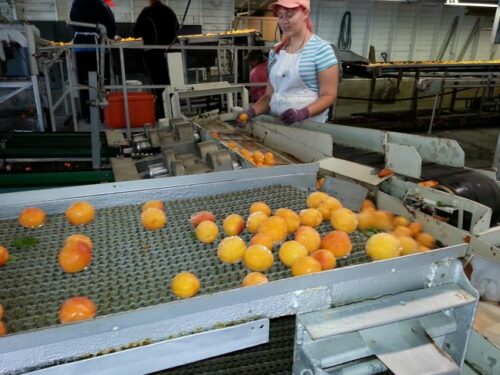-
 Bribery is one of the most commonly reported economic crimes in the UK, with nearly one quarter of British businesses having been exposed to it in some form. It is against the law for companies based in the UK to pay or take bribes to gain business anywhere in the world. It is also a criminal and a corporate offence if a company is found to have failed to prevent bribery. If found guilty, companies can face unlimited fines, while individuals can be handed an unlimited fine and 10 years in prison.
Bribery is one of the most commonly reported economic crimes in the UK, with nearly one quarter of British businesses having been exposed to it in some form. It is against the law for companies based in the UK to pay or take bribes to gain business anywhere in the world. It is also a criminal and a corporate offence if a company is found to have failed to prevent bribery. If found guilty, companies can face unlimited fines, while individuals can be handed an unlimited fine and 10 years in prison. -

 According to government statistics, there are 15,000 fires in workplaces and places where people gather in England every year. That’s 40 fires a day. The costs associated with fire are significant from physical costs including destruction of property, loss of income and increased insurance premiums, through to immeasurable, profound costs including loss of life, severe injury and reputational damage.
According to government statistics, there are 15,000 fires in workplaces and places where people gather in England every year. That’s 40 fires a day. The costs associated with fire are significant from physical costs including destruction of property, loss of income and increased insurance premiums, through to immeasurable, profound costs including loss of life, severe injury and reputational damage. -
 GTS’s Introduction to Allergens e-learning course has been approved by Allergy UK as meeting the standards required to become a part of the Allergy Aware Scheme. Food allergies and intolerances are at the top of many food businesses watch lists, and yet high-profile allergen cases are never far from the news headlines. It is important that anyone working in the food industry is aware of allergens, and the steps that should be taken to effectively manage and control the risk of allergens.
GTS’s Introduction to Allergens e-learning course has been approved by Allergy UK as meeting the standards required to become a part of the Allergy Aware Scheme. Food allergies and intolerances are at the top of many food businesses watch lists, and yet high-profile allergen cases are never far from the news headlines. It is important that anyone working in the food industry is aware of allergens, and the steps that should be taken to effectively manage and control the risk of allergens. -
 The HSE estimates that workplace injuries cost the UK economy over £15 billion per year. Official figures estimate the cost to business at £3.2 billion with individuals losing approximately £8.6 billion. Effective training can reduce the potential risk of harm occurring in the workplace, and save you money.
The HSE estimates that workplace injuries cost the UK economy over £15 billion per year. Official figures estimate the cost to business at £3.2 billion with individuals losing approximately £8.6 billion. Effective training can reduce the potential risk of harm occurring in the workplace, and save you money. -
 The General Data Protection Regulation (GDPR) came into effect on 25 May 2018. It strengthens existing legislation on how businesses store and process data. Ensuring that your organisation is up to speed with the GDPR is essential, not only to protect your clients’ data, but also to protect your business from fines, penalties and reputational damage.
The General Data Protection Regulation (GDPR) came into effect on 25 May 2018. It strengthens existing legislation on how businesses store and process data. Ensuring that your organisation is up to speed with the GDPR is essential, not only to protect your clients’ data, but also to protect your business from fines, penalties and reputational damage. -
 It is estimated that 1 in 10 people will suffer from food poisoning this year. That means millions of people in the UK will become sick due to the food that they eat. In many cases, outbreaks of food poisoning can be traced back to failures of management, and a lack of supervision of people and processes.
It is estimated that 1 in 10 people will suffer from food poisoning this year. That means millions of people in the UK will become sick due to the food that they eat. In many cases, outbreaks of food poisoning can be traced back to failures of management, and a lack of supervision of people and processes. -
 Public confidence in terms of food safety is a major concern for any business in the food sector. With increasing public, media and legislative scrutiny, food businesses need to get it right first time, every time. Ensure your staff understand their role in maintaining food safety with a course written by one of the world’s leading food safety experts, Richard Sprenger, and accredited by the UK’s leading organisation for regulated food safety qualifications.
Public confidence in terms of food safety is a major concern for any business in the food sector. With increasing public, media and legislative scrutiny, food businesses need to get it right first time, every time. Ensure your staff understand their role in maintaining food safety with a course written by one of the world’s leading food safety experts, Richard Sprenger, and accredited by the UK’s leading organisation for regulated food safety qualifications. -
 Public confidence in terms of food safety is a major concern for any business in the food sector. The risk of cross-contamination in a manufacturing environment is high. With increasing public, media and legislative scrutiny, food businesses must get it right first time, every time. Equip your staff with the skills to protect your business.
Public confidence in terms of food safety is a major concern for any business in the food sector. The risk of cross-contamination in a manufacturing environment is high. With increasing public, media and legislative scrutiny, food businesses must get it right first time, every time. Equip your staff with the skills to protect your business. -
 Most fires can be prevented. Everybody within the workplace has responsibility for fire safety. The key to avoiding fire within your business is understanding factors and behaviours within your business and carrying out a thorough assessment to minimise risk. This course will equip learners with the knowledge and skills to avoid the risk of fire in your business.
Most fires can be prevented. Everybody within the workplace has responsibility for fire safety. The key to avoiding fire within your business is understanding factors and behaviours within your business and carrying out a thorough assessment to minimise risk. This course will equip learners with the knowledge and skills to avoid the risk of fire in your business. -
 For an organisation to thrive, it must strive to create an environment with equality of opportunity for all, and that celebrates the differences that make us unique. Equality and diversity concerns avoiding discrimination and ensuring that there is equal opportunity for all stakeholders, which in turn leads to a positive company culture and better staff engagement levels.
For an organisation to thrive, it must strive to create an environment with equality of opportunity for all, and that celebrates the differences that make us unique. Equality and diversity concerns avoiding discrimination and ensuring that there is equal opportunity for all stakeholders, which in turn leads to a positive company culture and better staff engagement levels.




